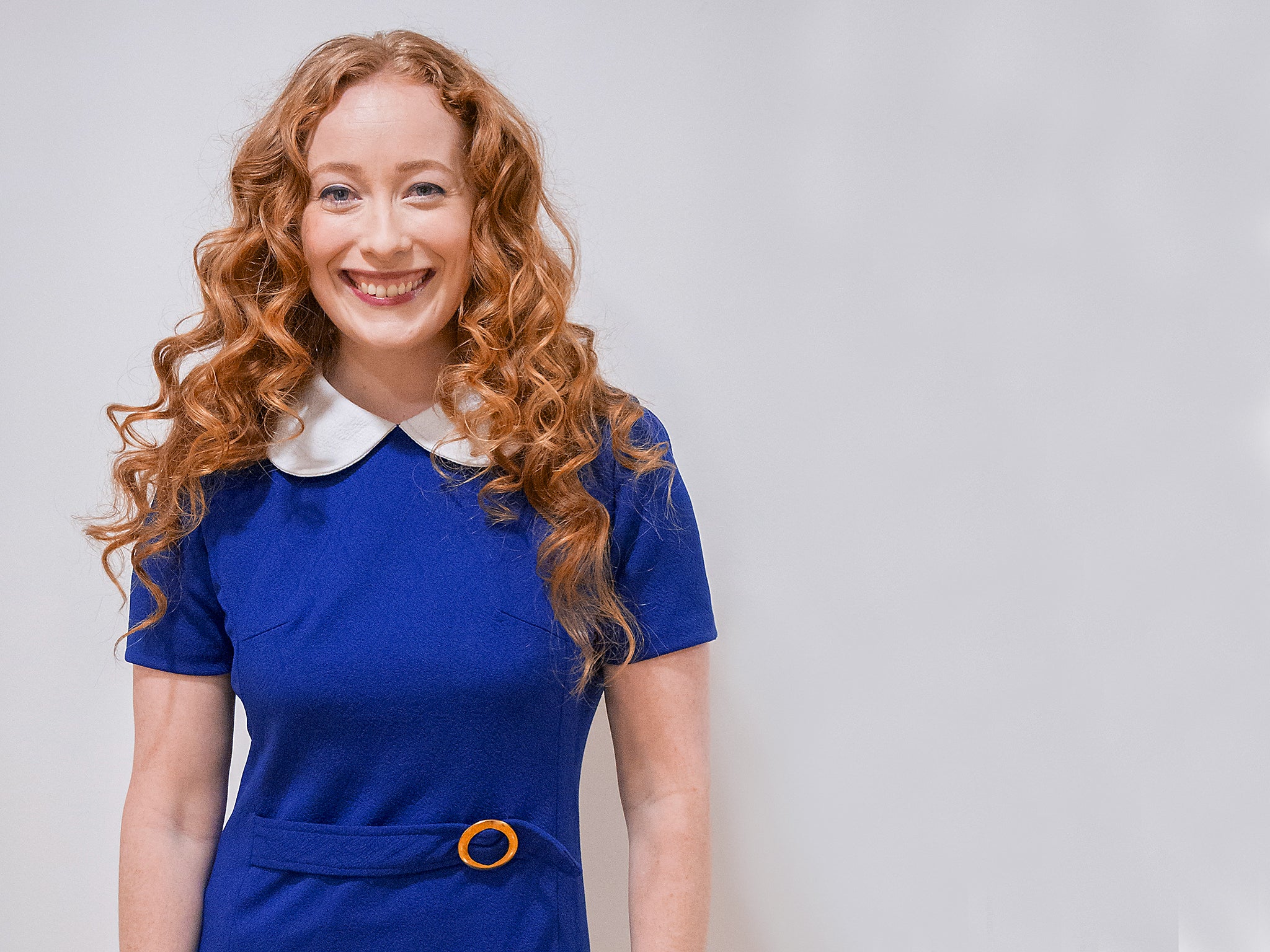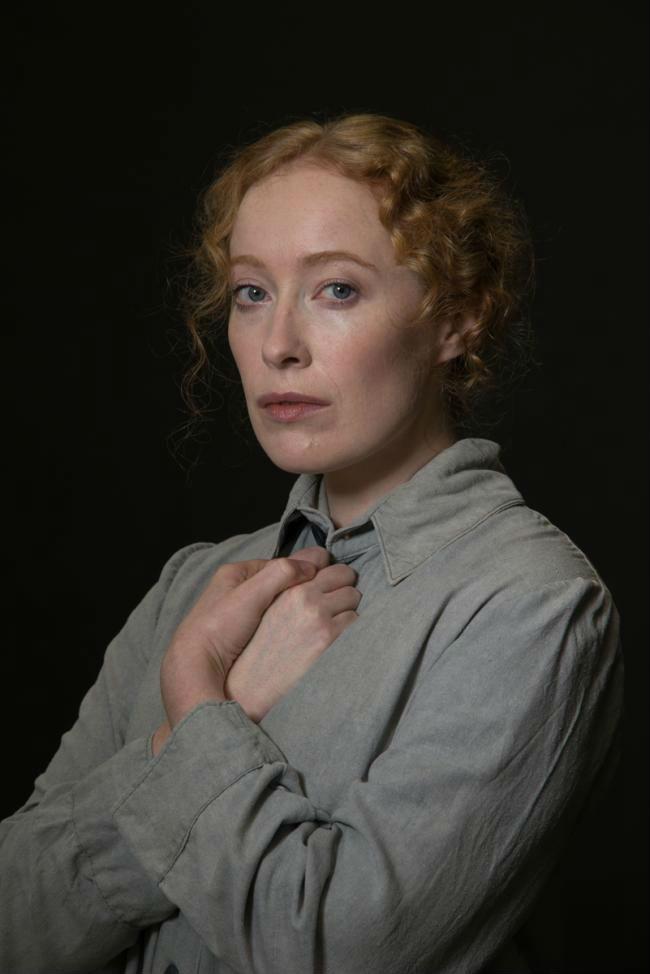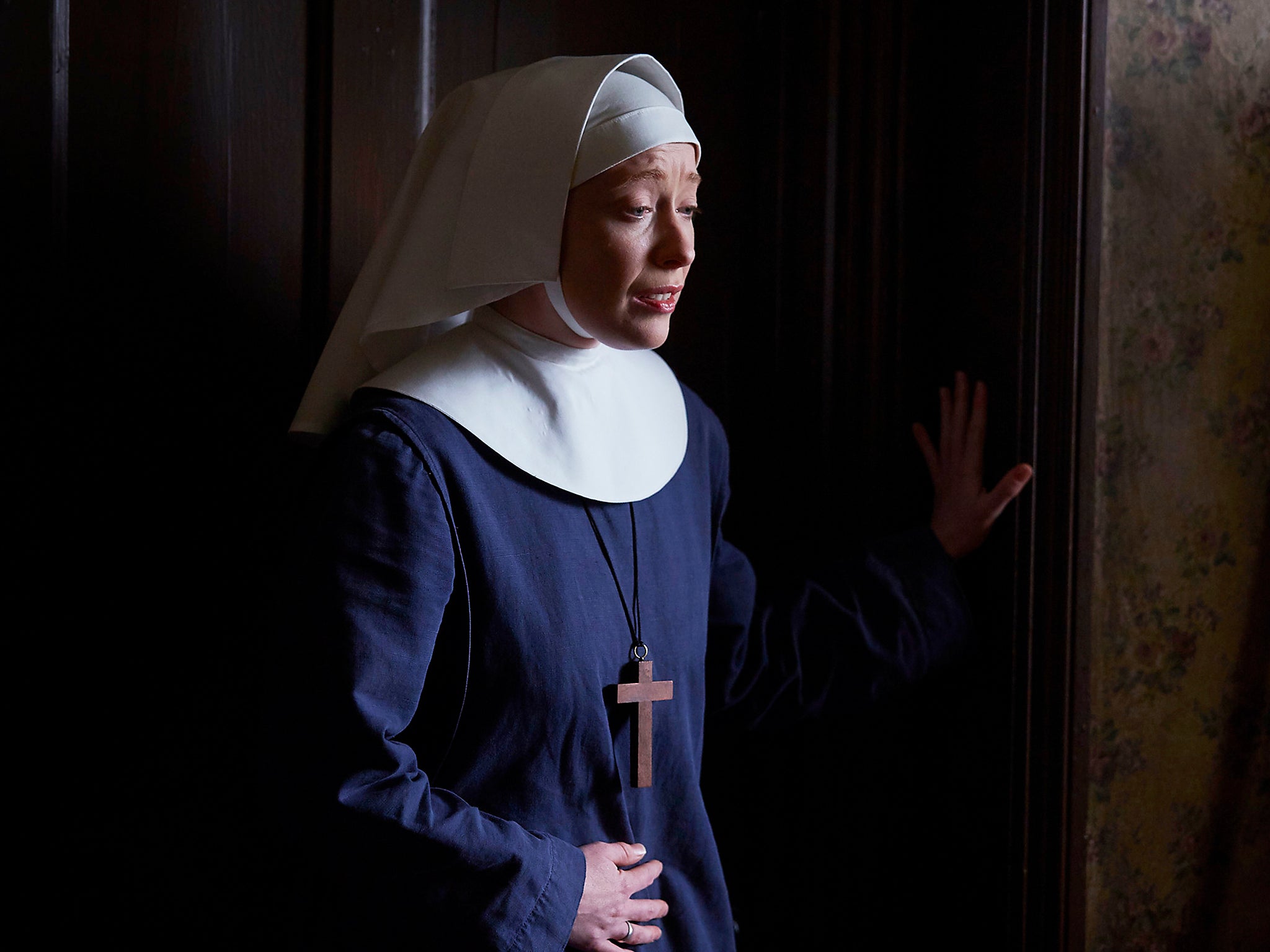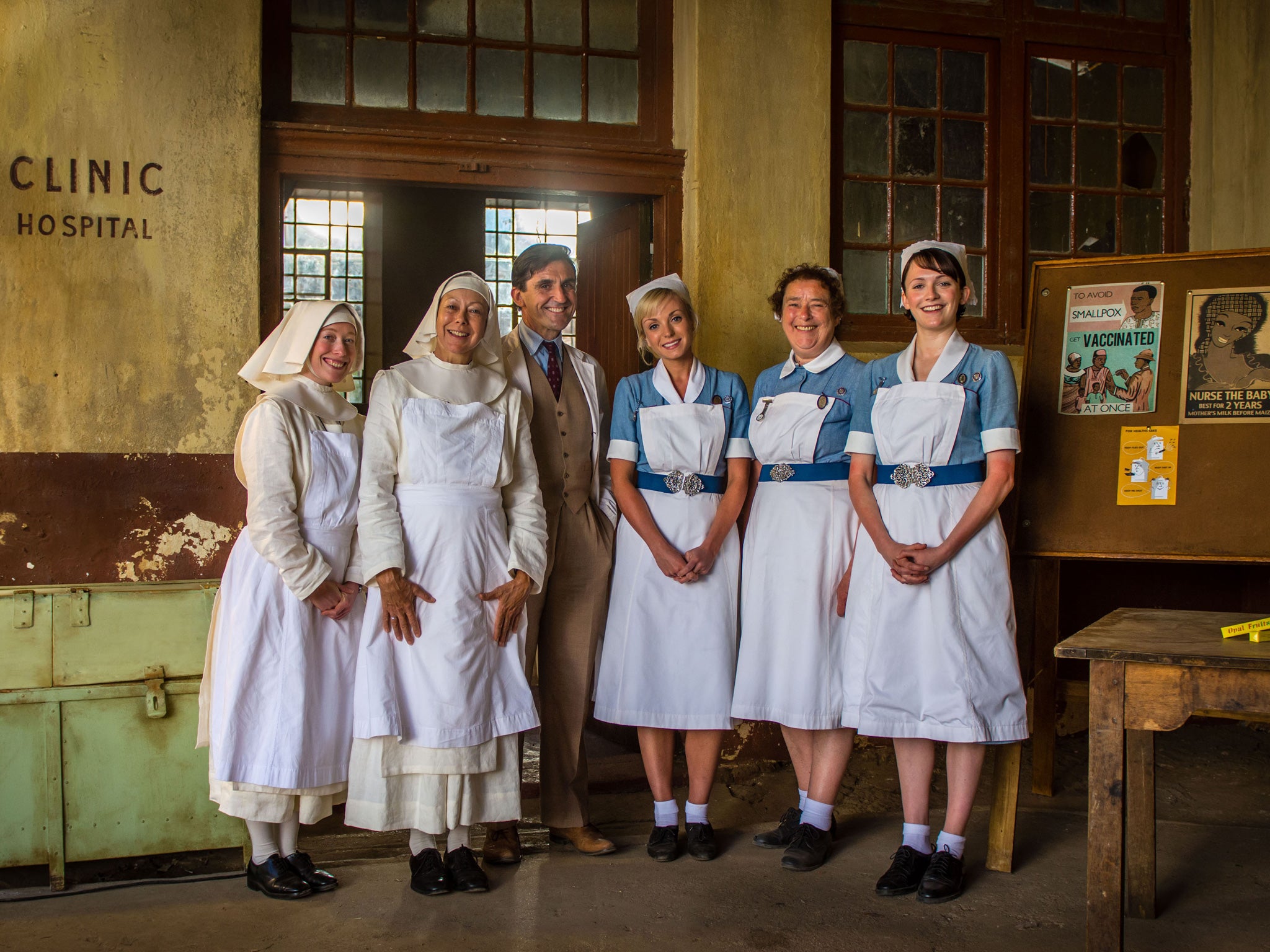Call The Midwife's Victoria Yeates on nuns and her new role in The Crucible
Victoria Yeates, who plays Sister Winifred in 'Call The Midwife', is starring in a new touring production of 'The Crucible', based on the Salem witch trials

Your support helps us to tell the story
From reproductive rights to climate change to Big Tech, The Independent is on the ground when the story is developing. Whether it's investigating the financials of Elon Musk's pro-Trump PAC or producing our latest documentary, 'The A Word', which shines a light on the American women fighting for reproductive rights, we know how important it is to parse out the facts from the messaging.
At such a critical moment in US history, we need reporters on the ground. Your donation allows us to keep sending journalists to speak to both sides of the story.
The Independent is trusted by Americans across the entire political spectrum. And unlike many other quality news outlets, we choose not to lock Americans out of our reporting and analysis with paywalls. We believe quality journalism should be available to everyone, paid for by those who can afford it.
Your support makes all the difference.Victoria Yeates is best-known for playing Sister Winifred in the phenomenally popular BBC 1 series Call the Midwife but she began her career not on screen but on stage. After graduating from RADA in 2006 she took a series of weird and diverse roles. She attracted critical praise as Sybil in Noel Coward’s Private Lives at the Nottingham Playhouse, played Poppy Dickey, who loses her clothes in the famous Aldwych farce the Rookery Nook at the Menier Chocolate Factory and Jean Harlow in The Beard, a play by beat poet Michael McClure, exploring his ‘meat theory’, by which all human beings are “bags of meat”. It’s safe to say she had an interesting drama CV, but, until CTM, was being passed over for some of the... meatier roles.
“People didn’t know where to put me” says the confident redhead, who is currently in a new production of The Crucible, her character Elizabeth Proctor is a few steps removed in temperament from the part she plays in Call the Midwife. But it’s only recently that casting directors have begun to understand her phenomenal range as a performer. “I did a workshop at the Royal Court, and they said, ‘It takes ten years to make an acting career’. So you flex your muscles in that way and finally it starts to culminate into what kind of actor you are”.
It’s all coming together nicely for the 33-year-old, who got engaged to her boyfriend, the music producer and composer Paul Housden, while she was out filming the Call the Midwife Christmas Special in South Africa last April.
“Paul flew out to see me as a surprise and then we had a week after filming when we went on safari and he proposed. It was on a press conference at Christmas that I told a reporter I’d got engaged but I didn’t expect it to be in the papers the next day.”

It was a happy moment, but it was also a bit of a wakeup call for the actor of how far her career has come. “You don’t think it’s news. At least, it didn’t occur to me that it was of interest, and it was the first time me and Paul thought, what is going on?”
Those who meet her might be surprised to find that Yeates is not a shy, retiring type like her character. Sister Winifred is a novice who is still finding her feet at Nonnatus House.
“She’s really interesting to play because she has so much hidden about her. In the new series she is becoming more confident and in the next series you really start to see more about her.”
For someone who plays a nun, she had some struggles with her own religious upbringing, eventually rejecting it for a sort of spiritual atheism; her Twitter bio says: Part nun part hippie.
Yeates was brought up Irish Catholic and went to a Catholic primary school. It wasn’t until recently when she went back to give out awards at the school that she realised “how religious it was”. Although she stresses that it was a good school, some of the religious messages really made her worry for the state of her soul.
“I used to have nightmares about the devil, even until I was a teenager” she says. “So I can relate to those feelings in The Crucible, where children as young as four or five were having existential crises about whether they were damned at the time [it is set]”.

At 16, she started reading Christopher Hitchens and Aldous Huxley and started to distance herself from hr religion. “I disassembled what my faith had been as a child,” she says.
The next move – to RADA – changed her outlook completely. “At RADA there were a lot of Buddhists there and we also practiced Alexander Technique”. She was inspired to take a pilgrimage to an ashram and started doing a lot of yoga and meditation.
“I suppose now I am not religious but slightly spiritual but I wouldn’t say I believe in God.”
The actor plays Elizabeth Proctor in The Crucible, the wife whose husband has an affair and who is accused of witchcraft. “It’s such a dream role, like Lady Macbeth or Nora in A Doll’s House,” she enthuses. “Call the Midwife has got that warm, nostalgic feel, yet it’s still dealing with relevant issues but then it’s pre-watershed and it’s supposed to be educational as well so it’s balancing all of that, whereas The Crucible grabs you by the throat from the start.”
Arthur Miller’s classic text, based on the Salem witch trials of 1692-3, deals in mass hysteria, division of a community, mob mentality and lies as its core themes, which perhaps makes it more pertinent now than ever in this era of Trump, Brexit and alternative facts. However under the new rules set by the Government to include more British writers on the syllabus, it will not be included on the GCSE English set text list any more.
“When the director, Douglas Rintoul decided to do the play it was way before Brexit and Trump but it is so relevant to what is happening in the world now because it demonstrates that if you don’t act quickly enough to stop a bad situation, it spirals out of control. It seems so absurd now that a woman could be put in jail for being a witch but history shows that looking at humans can go collectively to places that are so baffling and overwhelming in hindsight.”
The Crucible will be touring theatres across the UK, with shows in Hornchurch, Dartford and Colchester. A deliberate ploy to influence the UKIP and Brexit territories?

“Well, we’ll see. I hope that the text is so inclusive and accessible that it opens those audiences up to new ideas. At its heart the play is about a marriage and the love within it, and integrity and shame. Those ideas are so accessible and when people connect like to those emotions then they take in something, without it being didactic.”
We are speaking just after Trump has signed an executive order restricting NGOs receiving American federal government funding from offering or promoting abortion when they work abroad. The abortion episode of Call the Midwife seems to advocate a woman’s right to choose but is presented in a way that offers balanced views on the debate, so I thought there might be a pause while she weighs her words, but she doesn’t even take a breath. “It is so backward,” she says flatly, “I am pro-choice and this is where The Crucible comes in because it is representative of the bureaucratic nature of the far right... What fuels strict laws against abortion are people’s religious views.”
Her co-star Charlie Condou, plays Marcus Dent in Corrie, is the yin to her yang. While she’s discussing the subtextual relevance to post-truth politics, he’s mucking about with the cast.
“Charlie, he is so lovely, he doesn’t take himself too seriously, he is intelligent and easy-going and he likes to talk but wants to get the job done,” she laughs. “You can’t afford to get too earnest with this kind of thing.”
‘The Crucible’ until 11 March at Queens Theatre Hornchurch before embarking on a national tour. 'Call The Midwife' is currently on BBC1, Sundays at 8pm
Join our commenting forum
Join thought-provoking conversations, follow other Independent readers and see their replies
Comments